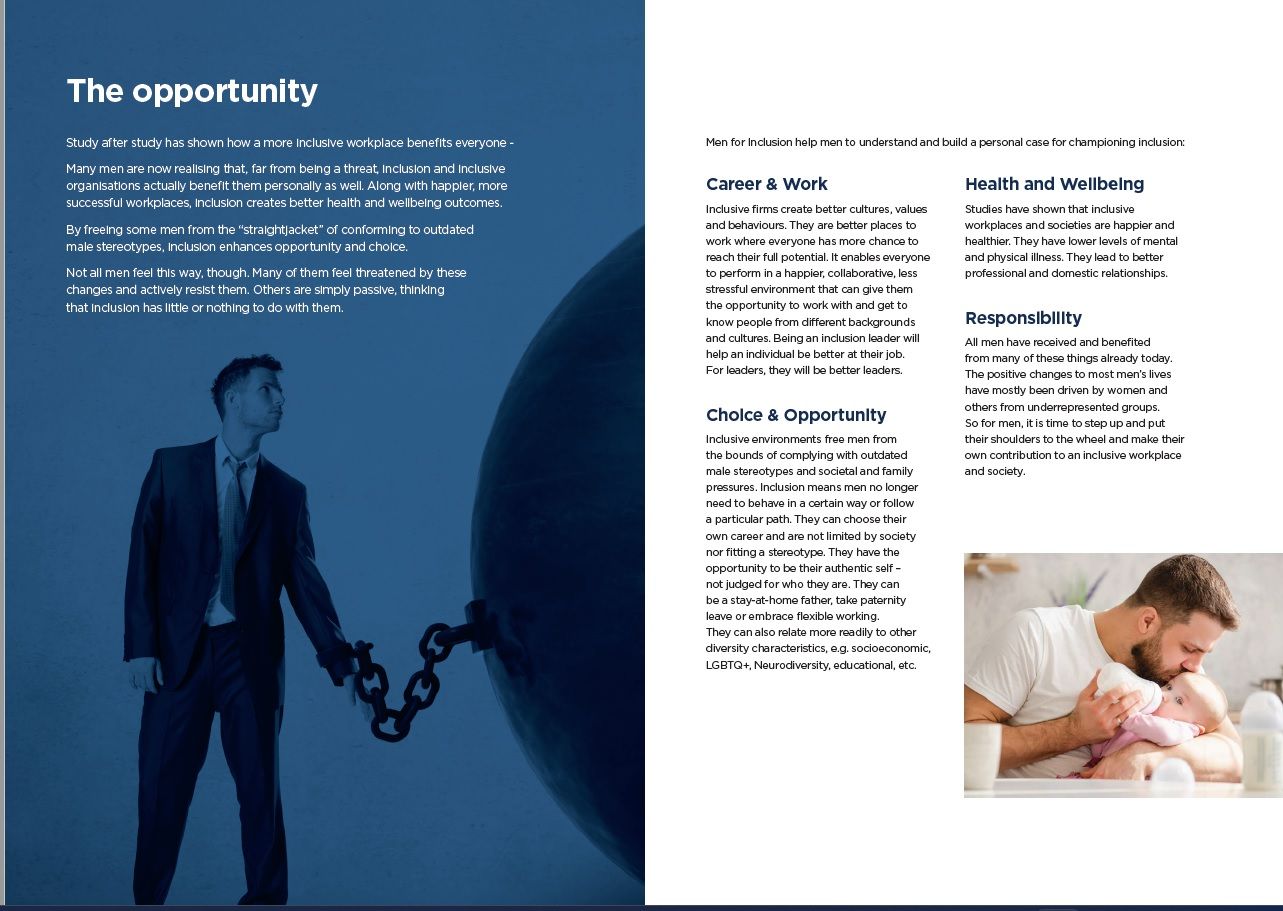
What’s in it for me?
Mark.Freed / 18 Jun 2023
It is often quoted that diversity is being invited to the party, inclusion is being asked to dance and equality is being able to dance as though no one was looking. Well let me tell you my wife was invited to that party and attended. The only refreshments were real ale, a good Bordeaux and selection of fine scotch. The food was scotch eggs, pork pies and sausage rolls. The music she was expected to dance to was a selection of 1970’s heavy rock. She was asked to dance only when a few slow dances came on. I’ll leave that to you to reach your own conclusions. She did not stay long…
My point is that we can count and measure diversity, but where does that get us if those from underrepresented groups can only perform and be measured to men’s standards. Would the theoretical Lehman Brothers and Sisters have failed quicker if the sisters had all been forced to act and behave like brothers?
We’ve spent years counting and training women to succeed in workplaces with systems, processes and cultures that largely favour men. We have spent very little on engaging men in DEI. Our Men for Inclusion research shows a massive gap in the lived experience of men and women in the workplace, that is costing our industry, our innovation, our competitiveness, our growth. Half our working population are not able to perform to their best or reach their potential. Many boards are experiencing these costs in more extreme ways as women feel more confident to callout the totally unacceptable; bullying, misogyny and sexual harassment.
Many men now see DEI as a threat. But it’s not DEI is good for men as well. They are happier, healthier, have more choice and opportunity. Inclusive leaders are more successful.
We need to stop fixing the women and start helping men to understand the female lived experience and how male accidental sexisms hold us all back. We need to help men answer the question, what’s in it for me?
Women are succeeding in throwing off the straightjackets of complying with outdated female stereotypes and are now highly visible in every area of our lives and led by some amazing role models. We invite men to start unbuckling their straightjackets. How do we ensure that all men, up and down organisations, have the opportunity to discuss these points and then join the drive toward changing these behaviours and values to move our workplace and wider cultures to that of a modern, successful and sustainable economy and society.
Back to blog




 Women in Financial Services
Women in Financial Services